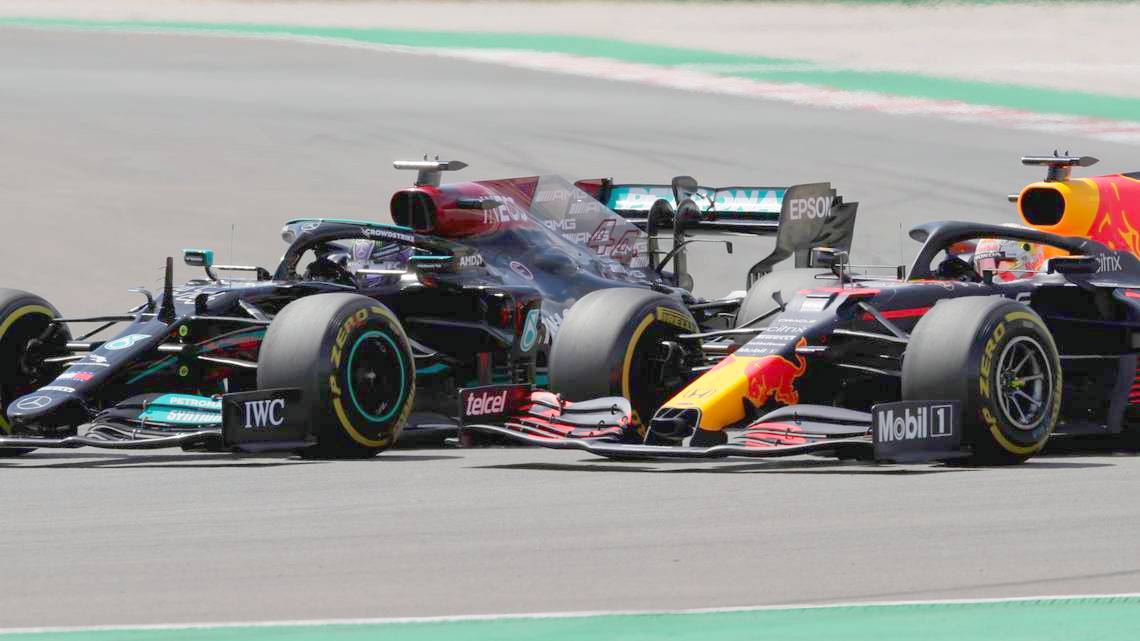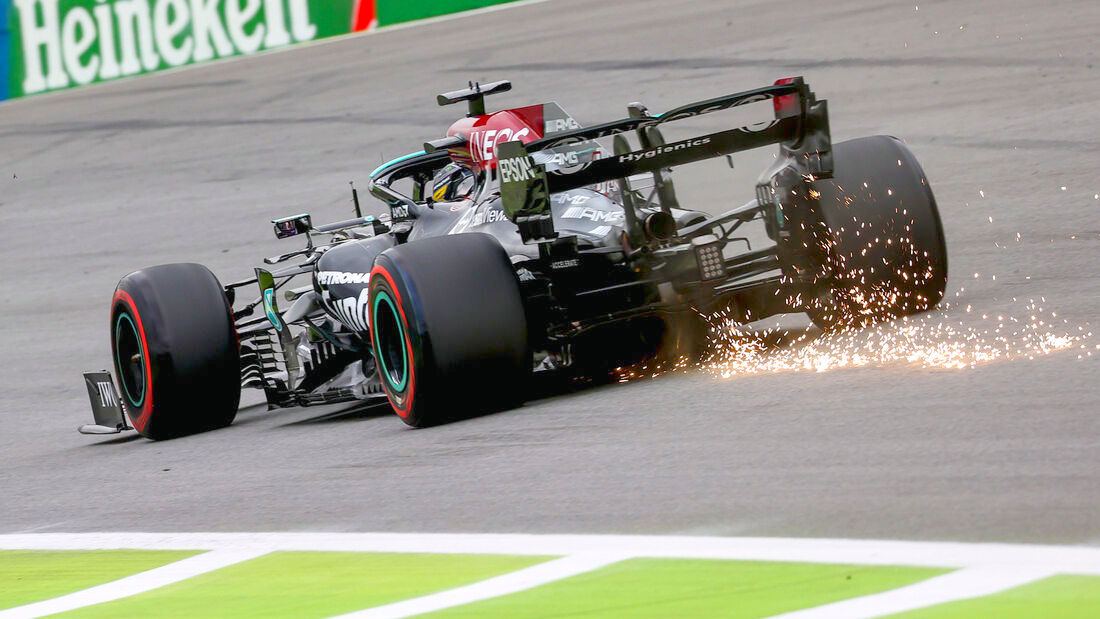F1: Hamilton was not going to win F1 title without unfair ‘trick’ Mercedes engine
A Driver’s championship is supposed to be about the best driver. Unfortunately, in F1, the driver with the best car always wins the Driver’s Championship, meaning the best driver may not be the champion.
Any stick and ball sport fan would tell you that in sports, human skill should win out over everything else.
We think Max Verstappen and Lewis Hamilton are equal on driver skill. In fact, we think Max Verstappen may be a little better given his age and better reflexes, but that is only an assumption on my part. Unless they were teammates in equal cars, there would be no way to know with any certainty.

No one would argue that they are the two best drivers in F1, perhaps ever. So, let’s, for the moment, assume they are equally skilled behind the wheel.
Max Verstappen appeared to have a solid lock on the title with four races to go.
Then Mercedes installs the powerful ‘trick’ engine in Hamilton’s car, and all of a sudden, the best Verstappen could do was finish 2nd in the last four races and lose the title on points.
Even if Verstappen was a better driver than Hamilton, Hamilton’s car had so much more power, driver skill was no longer part of the ‘Driver’s’ title battle.
Short of taking Hamilton out, which no one wants to see, Verstappen was rendered helpless.
Who can forget the 1994 Indy 500 when Mercedes and Ilmor created a special engine, called the ‘beast‘ that blew the competition out of the water – no one else had a chance. Surprising the competition with a superior ‘trick’ engine is nothing new for Mercedes.

Look back to the current F1 hybrid era to see how dominating Mercedes was. Only one of their drivers was going to win the title every year.
Is that really a ‘Driver’s’ world championship when no other driver has a chance because of their inferior equipment?
Of course not! And something has to change.
So, while we can all agree that Hamilton was wronged in how the finish of the Abu Dhabi GP was handled, if this was truly a ‘Drivers’ championship, then Hamilton would never have received the unfair engine advantage that Mercedes handed him on a silver platter those final four races, and he would, therefore, have lost the championship to Verstappen.
And that’s the problem F1 has had for the last six years or so. Lewis Hamilton has had the superior car every year, and, combined with his skill behind the wheel, winning the title was a foregone conclusion.
Is that how a ‘Driver’s’ title should be determined?
Absolutely not.
While that is ok for a Manufacturer’s title ( the best manufacturer wins), F1 must rethink how the ‘Driver’s’ title is determined.
Motorsports victories have always been partially about how good of a car you had, but in F1 because the rules are so wide open and almost nothing is ‘spec’, a deep-pocket manufacturer can gain a ‘significant’ advantage for them and their drivers.
F1 should do some soul-searching to see if they can come up with a way that puts winning the ‘Driver’s’ championship back into the hands of the best driver.
Short of F1 becoming a spec series, which no one wants to see, perhaps the new rules in place for budget caps and standardized portions of the car, will give the results the ‘Driver’s’ title needs.
But what if they don’t?
BoP Adjustments a Slippery Slope
In IMSA and the World Endurance Championship, Hamilton would have never been allowed to keep his HP advantage. Mercedes would have been hit with an immediate Balance of Power (BoP) Adjustment and Hamilton’s unfair advantage neutered.
While BoP adjustments are a slippery slope, and hence we doubt F1 would consider that route, perhaps that is the only way to make the F1 ‘Driver’s Title’ really about the driver.
Playing with the Point System
If BoP is not the way, what other wild ideas can one think of. What about the point allocation.
For example, today an F1 winner gets 25 points per win for every win. Suppose instead the points were awarded in a way that a driver with a really dominant car and winning all the races, would begin to get less points for each win.
How might that work? Hypothetically…….
- Driver’s First 5 Wins: 25 points per win
- Driver’s 6th win of the season: 24 Points awarded
- Driver’s 7th win of the season: 23 Points awarded
- Driver’s 8th, 9th or higher win: 22 Points Awarded per win
Because 2nd place gets 18 points, when the winner is down to 22 points for a win, instead of 25, the delta is just four points between 1st and 2nd.
The above hypothetical system gives the driver with the slightly slower car, a fighting chance.
Anyone have a better idea, or does F1 continue down the path that the Driver’s title is more about the car you are driving than the skill of you as the driver?
And we can argue endlessly about who really is the best.
Mark C. reporting for AutoRacing1.com
